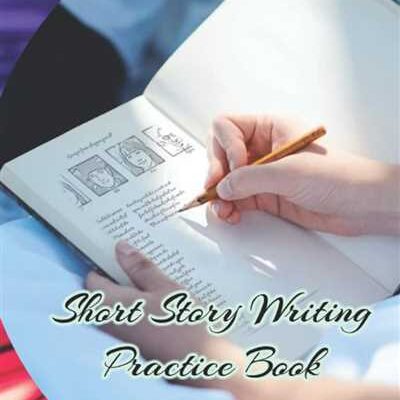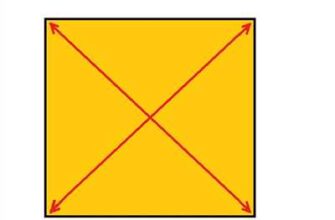
Are you a writer struggling to express your ideas in the most precise and captivating way? Do you want to improve your storytelling skills and create amazing works of fiction that will leave readers hooked? Then it’s time to practice writing stories!
Writing stories is not just about putting words on a page. It’s about captivating your reader with compelling characters, an engaging plot, and a precise use of language. To help you hone your skills, we have put together a worksheet that asks you to think deeply about your story and the elements that make it great.
The first exercise in the worksheet is about creating a strong introduction. It’s important to hook your reader from the very first line, so think carefully about how you can grab their attention and make them want to keep reading. You can use powerful imagery, intriguing dialogue, or a thought-provoking question to draw them into your story.
Another exercise asks you to focus on the rhythm and flow of your story. Just like a song, a well-written story has a certain rhythm that keeps the reader engaged. Use this exercise to think about the pace of your story and how you can effectively build tension and suspense.
After that, there are exercises that help you develop your characters and plot. You’ll find worksheets that ask you to describe your characters in detail, giving them unique traits and motivations. You’ll also find exercises that guide you through the process of outlining your plot, ensuring that it has a clear beginning, middle, and end.
But it’s not all about pen and paper. Practicing writing stories can also involve activities that are more interactive, such as watching videos or even talking to someone about your story. These exercises help you broaden your perspective and gain new insights into your writing.
So, if you’re struggling to find inspiration or feel stuck in your writing, don’t worry. The worksheets and exercises provided here will help you overcome writer’s block and get those creative juices flowing again. Take your time, work through each exercise meticulously, and watch as your writing skills improve with each story you write.
In the end, remember that writing stories is a journey. It takes time and practice to become a skilled writer, but with dedication and perseverance, you can make your mark in the literary world. So grab your pen, sit down at your desk, and start practicing! The world is waiting to read your amazing stories.
- 6 Amazing Writing Exercises For New Writers to Improve Writing Skills
- 4 Short Story Writing Exercises
- Writing Practice Worksheets Terms of Use
- 1. Use the worksheets for personal practice
- 2. Do not redistribute or sell the worksheets
- 3. Follow the instructions carefully
- 4. Use the worksheets across various genres
- 5. Write with precision and rhythm
- 6. Reflect on your writing
- Sources
6 Amazing Writing Exercises For New Writers to Improve Writing Skills
If you’re a new writer looking to improve your writing skills, then practicing with writing exercises can be a great way to enhance your abilities. These exercises help you develop your creativity, strengthen your storytelling, and improve your overall writing technique. Below are six amazing writing exercises that can help new writers improve their skills:
| Exercise | Write a Short Story |
| Description | Write a short story using a prompt or your own idea. Focus on creating a compelling plot, well-developed characters, and a satisfying conclusion. |
| Benefits | Writing short stories allows you to practice storytelling in a concise format. It helps you explore different genres and experiment with narrative techniques. |
| Exercise | Use Writing Worksheets |
| Description | Complete writing worksheets that provide prompts or exercises to guide your writing practice. These worksheets may focus on specific aspects of writing such as character development, setting, or dialogue. |
| Benefits | Writing worksheets offer structured practice and help you focus on specific writing skills. They provide guidance and prompts to inspire your creativity. |
| Exercise | Write in Different Genres |
| Description | Challenge yourself to write stories in different genres such as mystery, romance, science fiction, or fantasy. This helps you explore different writing styles and expand your storytelling abilities. |
| Benefits | Writing in different genres allows you to broaden your writing skills and adapt to different storytelling techniques. It helps you discover your strengths and interests as a writer. |
| Exercise | Write Precise Descriptions |
| Description | Practice writing precise and vivid descriptions of people, places, and objects. Focus on using sensory details and descriptive language to bring your writing to life. |
| Benefits | Writing precise descriptions helps you develop your observational skills and improves your ability to engage the reader through vivid imagery. It enhances the overall quality of your writing. |
| Exercise | Write Dialogue |
| Description | Practice writing dialogue between two characters. Focus on creating natural-sounding conversations that reveal information about the characters and advance the story. |
| Benefits | Writing dialogue helps you develop your character voice and improves your ability to write realistic and engaging conversations. It adds depth and authenticity to your stories. |
| Exercise | Read and Analyze Examples of Writing |
| Description | Read examples of well-written fiction and analyze their structure, style, and technique. Pay attention to the author’s use of words, rhythm, and pacing. |
| Benefits | Reading and analyzing examples of writing helps you gain a deeper understanding of effective storytelling techniques. It allows you to learn from established writers and apply their techniques to your own writing. |
By practicing these amazing writing exercises regularly, new writers can improve their writing skills and become more confident in their abilities. Remember, writing is a skill that takes time and dedication to develop, but with consistent practice and the right exercises, you can become a better writer.
4 Short Story Writing Exercises

If you’re struggling with your short story writing skills, these exercises can help you improve your abilities to think creatively and express yourself with precision. These exercises are designed for fiction writers who want to practice and refine their craft.
Exercise 1: The Telephone Game
In this exercise, you’ll write a short story with six lines. Then, you’ll pass it to someone else who will read it and continue the story with an additional six lines. The story will be passed around the group until it reaches you again. When you receive the story, you must continue it using the last six lines written by someone else. This exercise will test your ability to follow a story line and think on the spot.
Exercise 2: The Precise Worksheet
This exercise asks you to use a worksheet that contains a list of words. You should write a short story that includes all of the words on the worksheet. This exercise will help you practice incorporating specific vocabulary into your writing and will improve your precision in choosing the right words.
Exercise 3: The Lawn Mower
In this exercise, you’ll write a short story that takes place entirely in a front lawn. The challenge is to create a compelling narrative using only the limited setting of a lawn. This exercise will help you explore different ways to create tension and conflict within a confined space.
Exercise 4: The Amazing World
For this exercise, you’ll write a short story in which the world is completely different from our own. Create a new world with its own set of rules and realities. This exercise will stretch your imagination and allow you to experiment with creating unique settings and characters.
By practicing these exercises, you will not only improve your writing skills but also develop your own rhythm and style as a writer. Remember, the most important thing is to read and write as much as you can. You’ll find inspiration from examples in books, stories, or even video games. So, grab a pen and start writing!
Writing Practice Worksheets Terms of Use
When it comes to improving your writing skills, practice is key. One of the most effective ways to practice writing is by using worksheets. Here, you’ll find a collection of amazing worksheets that you can use to practice your writing skills. But before you dive in, please take a moment to read and understand the terms of use for these worksheets.
1. Use the worksheets for personal practice
The worksheets provided here are for your personal use only. You may print them out or use them digitally to practice your writing skills. They are not to be used for any commercial purposes without prior written permission.
2. Do not redistribute or sell the worksheets
These worksheets are copyrighted material and should not be redistributed or sold in any form. They are intended for personal use only. If you think someone would benefit from using these worksheets, please direct them to this website so they can access them directly.
3. Follow the instructions carefully
Each worksheet comes with instructions on how to complete the exercises. Please read the instructions carefully and follow them exactly as described. This will ensure that you get the most out of each practice session.
4. Use the worksheets across various genres
The worksheets cover a wide range of writing genres, including fiction, short stories, and more. Use them to practice different styles and techniques to help you become a more versatile writer. The more you practice across different genres, the more well-rounded your writing skills will become.
5. Write with precision and rhythm
One of the goals of these worksheets is to help you improve your precision and rhythm in your writing. Pay attention to grammar, spelling, and punctuation as you complete the exercises. This will help you develop a more polished writing style.
6. Reflect on your writing
After completing each worksheet, take some time to reflect on your writing. What worked well? What could be improved? By analyzing your own work, you’ll be able to identify areas where you excel and areas where you can grow as a writer.
Remember, writing is a skill that can be developed and improved over time. By using these worksheets and practicing regularly, you’ll become a better writer. So make the most of these resources and happy writing!
Sources
If you’re struggling to improve your writing skills and want to practice writing stories, there are many sources you can use to help you. Here are some amazing resources that can assist you in becoming a more precise and expressive writer:
1. Books and Worksheets: You can find countless books and worksheets available online or at your local library that provide exercises and examples for you to practice with. These resources can help you develop your skills and provide you with new ideas for your stories.
2. Online Courses: There are many online courses available that focus on writing fiction and short stories. These courses often include video lessons, exercises, and worksheets. They can provide you with valuable guidance and feedback to improve your writing abilities.
3. Writing Groups and Workshops: Joining a writing group or attending workshops can be extremely beneficial. These environments allow you to connect with other writers, receive feedback on your work, and learn from experienced authors. Additionally, writing groups often provide writing exercises and prompts to inspire your creative thinking.
4. Reading: Reading is an essential part of improving your writing skills. By reading various genres and styles, you’ll expose yourself to different techniques and writing voices. Pay attention to how the author constructs their story, the words they use, and the rhythm of their writing. This can greatly influence the way you write and help you develop your own unique writing style.
5. Writing Prompts: When you’re struggling to come up with ideas, writing prompts can be a lifesaver. There are numerous websites and books dedicated to providing writing prompts. These prompts give you a starting point and help you overcome writer’s block.
6. Dedicated Writing Time: Sometimes, the best way to practice writing stories is to simply set aside dedicated time for it. Create a writing routine and commit to sitting down to write for a set amount of time each day. Even if you don’t feel inspired, the act of putting words down on paper can help you improve your writing skills.
Incorporating these sources into your writing practice can greatly enhance your storytelling abilities. Whether it’s using worksheets or participating in writing workshops, there’s something for every writer. Remember, the most important thing is to keep writing and never stop honing your craft!










